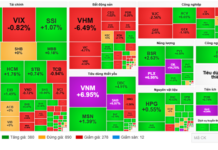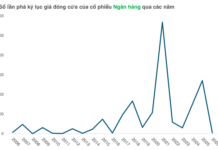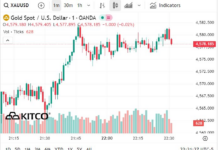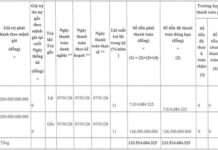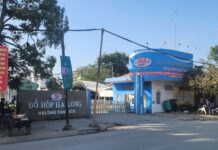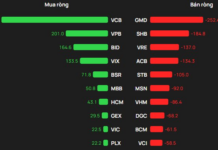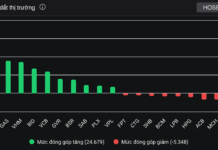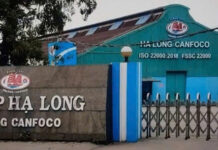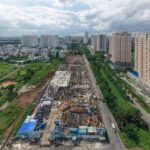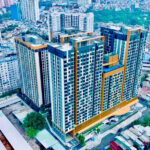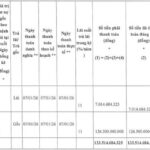In an exclusive interview with Tiền Phong, experts shed light on the rising prices of social housing projects in Vietnam. They attribute this trend to several key factors.
Firstly, since early 2024, construction material costs—such as cement, steel, stone, bricks, and gravel—have surged by 25–30%, with sand prices skyrocketing by 35%. Labor costs, particularly for unskilled workers, have also climbed due to shortages and higher technical demands. Additionally, the government’s increase in the minimum wage has further inflated labor expenses by 15–20%. These factors collectively drive up construction costs, directly impacting social housing prices.
Secondly, new regulations have altered the calculation of social housing prices. Previously, profits from commercial spaces within social housing projects were factored into overall costs, reducing housing prices or rental rates. These profits were typically allocated to subsidize social housing units, and developers were exempt from land use fees for these commercial areas.
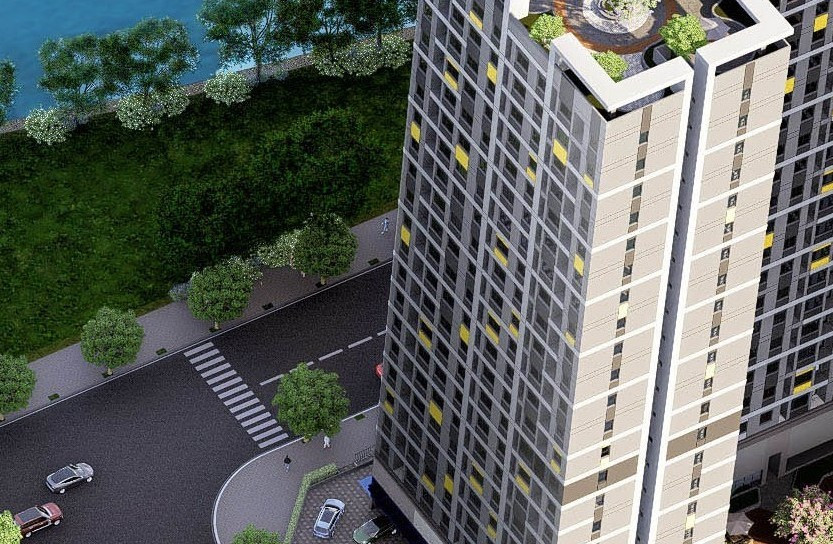
New regulations mandate developers to pay land use fees for commercial spaces.
However, the new rules require developers to pay land use fees for these commercial spaces, increasing upfront costs and pushing social housing prices higher. While residents benefit from a 50% exemption on land use fees when transferring apartments (after a minimum of 5 years from full payment), the overall price increase remains significant due to these regulatory changes.
Thirdly, the inclusion of Value-Added Tax (VAT) in investment costs has further exacerbated the issue. Previously, social housing construction costs excluded VAT, but new regulations mandate its inclusion, leading to higher selling and rental prices.
Lastly, modern social housing projects now feature high-end amenities, reflecting residents’ rising living standards. Developers are equipping projects with shopping centers, swimming pools, gyms, yoga studios, schools, and supermarkets within the premises. Many projects also include 2–3 basement levels to ensure ample parking for residents.
“To ensure the sustainable development of the social housing market, policies must be more flexible and aligned with residents’ financial capabilities. Cost control is essential to maintain reasonable prices, making social housing a truly ideal living option for low-income earners,” advises an expert from the Vietnam Real Estate Association.
Addressing the question of why social housing prices vary across projects despite uniform incentives, Mr. Chử Văn Hải, Head of Social Housing Development and Management at the Ministry of Construction’s Housing and Real Estate Market Management Department, explained during a social housing seminar: “Social housing prices are determined by construction investment costs plus a fixed 10% profit margin, as per regulations. These prices are reviewed by provincial authorities.”
Mr. Hải noted that social housing, defined as apartment buildings, adheres to the same standards as commercial housing under Regulation 04/2021 and related guidelines. The primary difference lies in unit size restrictions to lower prices. Social housing also benefits from state policies reducing costs while maintaining quality and infrastructure standards.
“Price variations among projects stem from differences in design requirements and project scale. Prefabricated or modular designs further influence pricing,” Mr. Hải added. Dr. Cấn Văn Lực, a member of the National Financial and Monetary Policy Advisory Council, highlighted the challenge of monitoring profit margins in social housing projects. “Despite the 10% profit cap, enforcement remains difficult. Alternative solutions, such as price ceilings, should be considered,” he suggested.
Over 82,000 Social Housing Units Expected to Be Completed This Year
Minister of Construction Trần Hồng Minh shared key insights at the Government’s online conference with local authorities this September, held earlier today (October 5th).
Revolutionary Sea Bridge Project Connecting Can Gio and Vung Tau Announced by Ministry of Construction
Voters in Ho Chi Minh City are urging the government to expedite investments in developing the Cai Mep – Thi Vai port into an international transshipment hub. Additionally, they advocate for the construction of the Can Gio – Vung Tau bridge and a high-speed railway connecting Ho Chi Minh City, Ba Ria, and Binh Duong. These initiatives aim to leverage enhanced transportation connectivity, bolstering export-import activities and logistics services.
Establishing Real Estate Trading Centers to Drive Down Housing Prices
The Ministry of Construction is set to propose a pilot resolution to the Government for the establishment of a state-managed real estate trading center. This initiative aims to introduce legal oversight over the supply and transaction prices of real estate, encompassing both primary and secondary markets.

